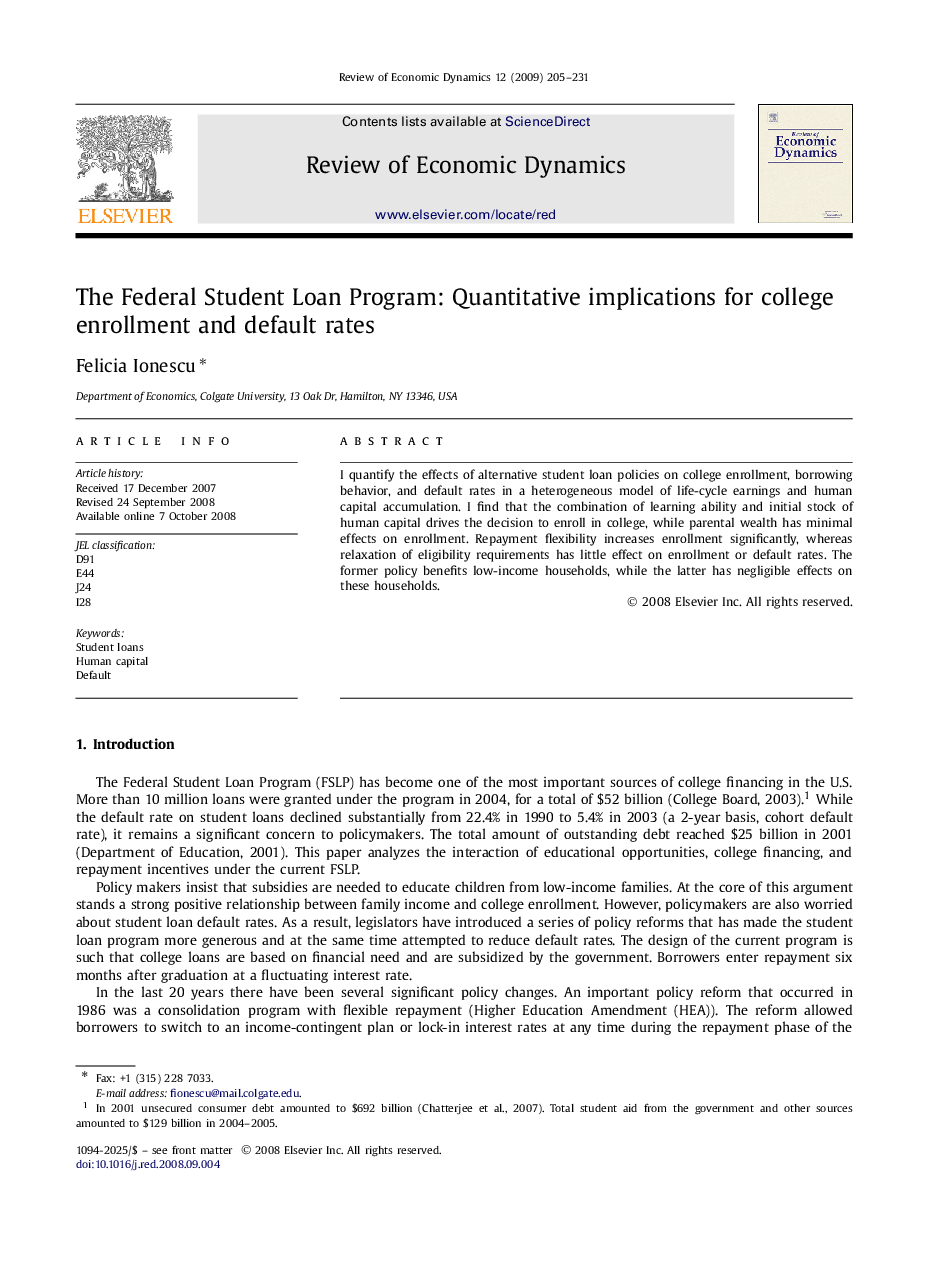| Article ID | Journal | Published Year | Pages | File Type |
|---|---|---|---|---|
| 985638 | Review of Economic Dynamics | 2009 | 27 Pages |
Abstract
I quantify the effects of alternative student loan policies on college enrollment, borrowing behavior, and default rates in a heterogeneous model of life-cycle earnings and human capital accumulation. I find that the combination of learning ability and initial stock of human capital drives the decision to enroll in college, while parental wealth has minimal effects on enrollment. Repayment flexibility increases enrollment significantly, whereas relaxation of eligibility requirements has little effect on enrollment or default rates. The former policy benefits low-income households, while the latter has negligible effects on these households.
Keywords
Related Topics
Social Sciences and Humanities
Economics, Econometrics and Finance
Economics and Econometrics
Authors
Felicia Ionescu,
